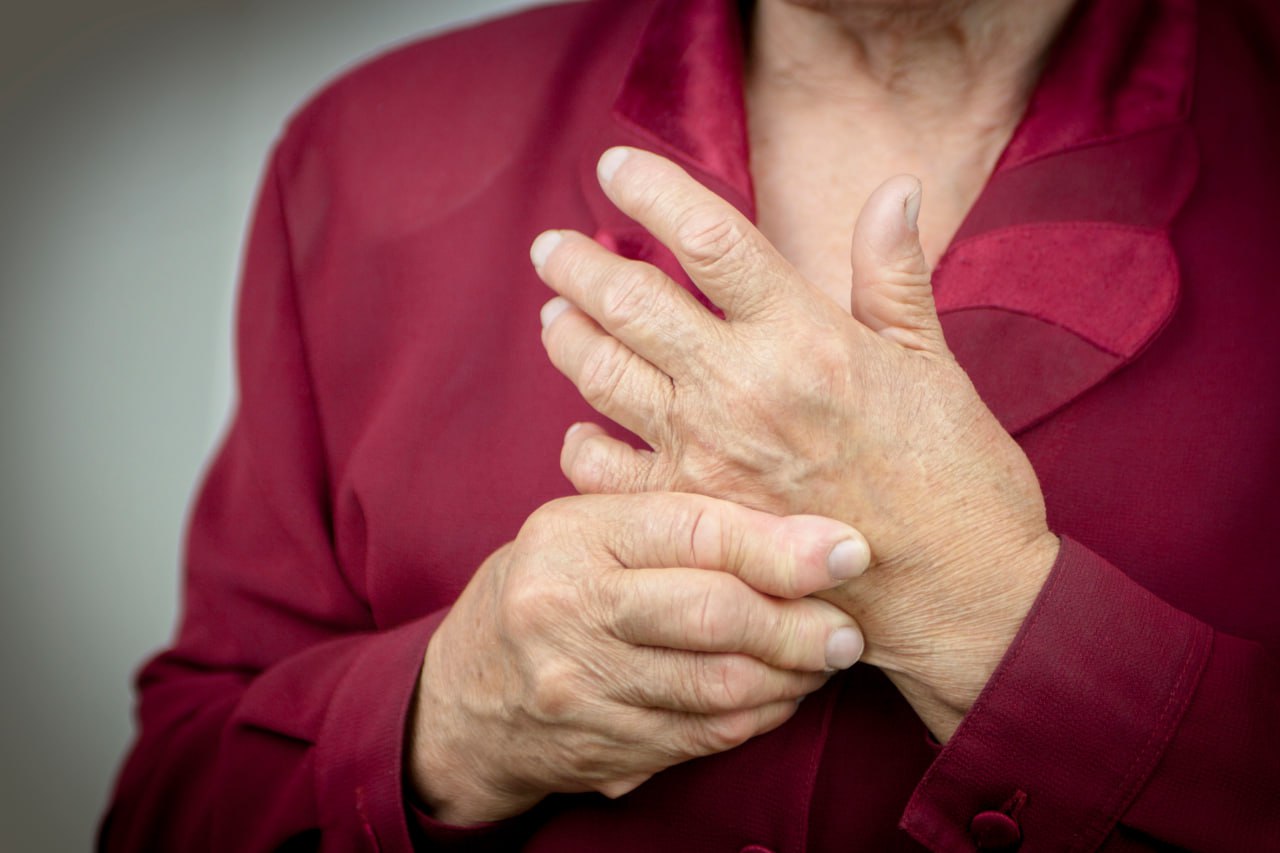Muscle spasms that occur in the neck can range from mildly irritating to painful and disruptive to day-to-day life. Not only can they be uncomfortable, but they are often the result of underlying conditions that can cause other symptoms as well. Along with some of these associated symptoms, muscle spasms in the neck can be quite debilitating. They can even limit your ability to perform daily tasks. To treat muscle spasms in your neck, you should understand what’s causing them and what treatment options are available.
Muscle Spasms In The Neck
Muscle spasms located in the neck can vary in intensity and location. Some common areas that may be affected include the back of the neck, sides of the neck, or both at once. In general, a muscle spasm in the neck may cause an intense, sharp pain that can be localized to one spot or spread out over a larger area. It may also be accompanied by tightness in the muscles of the neck.
Symptoms Associated With Neck Muscle Spasm
Although muscle spasms can sometimes occur without any other symptoms, there are often a few associated with a neck spasm. These can include:
- Sudden and sharp pain: Muscle spasms in the neck usually cause an intense, sharp pain that may come on suddenly and last several minutes to hours.
- Stiff neck: A stiff neck is also commonly felt along with the pain. This can make it difficult to move your head or turn it from side to side.
- Particular tenderness and sensitivity: The area around the muscle spasm can also become tender and sensitive to touch.
- Muscle weakness: You may also experience muscle weakness or coordination loss in the affected area. As a result, you may not be able to move or use the affected muscles fully and could experience a sudden reduction in your neck’s range of motion.
- Migraines: Migraines are a condition that can be associated with muscle spasms in the neck. This condition can cause severe headaches that are usually worse on one side and may cause nausea, throbbing pain, and sensitivity to light or sound.
- Tingling or numbness: Muscle spasms in the neck can also result in tingling or numbness in the arms, hands, and fingers. This can occur due to muscle spasms compressing nerves in the neck or as a symptom of an underlying condition.
- Muscle twitching: Muscle twitching may also occur in the neck area. Such twitching can range from being barely noticeable to more visible contractions and twitches of the neck muscles. Muscle twitching can be caused by fatigue, stress, dehydration, or nerve irritation.
- Difficulty sleeping: Muscle spasms in the neck can also make it hard to sleep. This is often due to the pain, stiffness, and discomfort caused by the spasm.
- Head drooping: If the muscle spasm is severe enough, it can cause your head to droop or tilt forward due to the imbalance of muscle strength in the neck.
- Fatigue: Muscle spasms in the neck can also cause fatigue or tiredness due to overworked and strained muscles.
Neck Muscle Spasm Causes
There are several things that can cause muscle spasms in the neck. Some of these temporary causes can be resolved with lifestyle changes or rest. Others may require medical attention if they persist. The following are some of the common causes of muscle spasms in the neck, as well as a few potential underlying conditions:
Common Causes
Some of the common causes of muscle spasms in the neck are:
- Neck positions: Sitting, standing, or sleeping with your neck in an awkward position can cause your neck muscles to become strained and tense.
- Sitting for long periods: Prolonged sitting in an uncomfortable position can also cause your neck muscles to become stiff and strained due to the lack of movement.
- Abrupt neck movements: Sudden and abrupt neck movements can strain or tighten the neck muscles due to the force of the movement.
- Stress and emotional tension: Stress and emotional tension can also affect your neck muscles, causing them to become tight because of your body’s physical response to the emotional state.
- Strain or injury: Straining or injuring your neck muscles can also make them tight and irritated. This is especially true if the injury or strain was caused by repeatedly performing a motion without proper rest. For example, if you have been lifting weights or running and don’t give your neck muscles a break, they may become strained and tight.
- Dehydration: Dehydration can also cause muscle spasms in the neck because it reduces the amount of water and electrolytes available to your muscles, causing them to become tight.
- Muscle tension: Muscle tension can cause spasms due to holding your muscles in an uncomfortable position for a long period of time or by taking part in activities where the muscles are used repetitively without any rest periods.
- Pinched nerves: Pinched nerves can also cause spasms in the neck as well as numbness, tingling, and weakness in the area. Pinched nerves are often the result of poor posture, tight muscles, or an underlying condition such as a herniated disc.
Other Possible Factors
Most of the common causes previously listed can be resolved with rest and lifestyle changes. However, if the muscle spasms in your neck persist or are accompanied by other symptoms, you may want to have them checked out by a doctor, as there could be an underlying condition causing them. Some possible conditions that can cause muscle spasms in the neck include:
- Herniated disc: A herniated disc can occur if the discs found between the vertebrae in your spine become damaged and push on a nearby nerve root, causing pain. A herniated disc can lead to muscle spasms in the neck if the disc is pressing on a nerve that is associated with the neck.
- Whiplash or traumatic injury: Whiplash is a type of neck injury that’s caused by a sudden jerking or jolting force, often as a result of a car accident. Whiplash can cause muscle spasms in the neck by damaging the surrounding muscles and tendons. Other traumatic injuries, such as falls or blows to the head, can also cause muscle spasms in the neck for the same reason.
- Ankylosing spondylitis: Ankylosing spondylitis is an inflammatory joint disease that mainly affects the spine. It can also affect the joints and ligaments in the neck, causing muscle spasms and other symptoms such as stiffness and pain.
- Spinal stenosis: Spinal stenosis is a condition that involves the narrowing of the spinal canal. Such narrowing can put pressure on the spinal cord and the nerves in your neck. This pressure can cause muscle spasms along with other symptoms, such as pain, numbness, and weakness.
- Joint conditions: Other joint conditions, such as arthritis or bursitis, can also cause muscle spasms in the neck. This is because these conditions affect the joints and ligaments in the neck area, leading to pain and stiffness that can cause spasms.
Test To Evaluate Neck Spasms
If you experience muscle spasms in your neck, it is crucial to see a doctor. They will perform a physical examination and ask about your symptoms and any recent traumas or injuries that may have caused them. They may also order imaging tests such as an X-ray, MRI, or CT scan to look for any underlying conditions or causes.
Conventional Treatment Options
Depending on the diagnosis of your neck spasms, treatment recommendations can range from lifestyle changes to physical therapy and beyond. Some of the conventional treatments for muscle spasms in the neck include:
Over-the-Counter Pain Medications
Over-the-counter (OTC) pain medications, which include ibuprofen and acetaminophen, can help reduce the pain associated with neck spasms. These medications also work to decrease inflammation that may be causing the spasm. However, if the spasms are caused by an underlying condition, OTC medications won’t be able to treat it. They are only effective at providing temporary relief – and if you rely on them for too long, their efficacy can diminish.
Injections
Injections such as corticosteroid injections or trigger point injections can reduce inflammation and pain in the neck area. These injections are typically given directly into the muscle and can provide relief for several days or weeks. However, they can lead to complications, such as infections, allergic reactions, and weakening of the muscle, so they should be used with caution.
Surgery
In cases where the muscle spasms are caused by an underlying condition – for example, a herniated disc – surgery may be recommended. Surgery can help correct the issue and alleviate the associated pain. However, you should speak with a doctor about the potential risks and complications before proceeding with any kind of surgical procedure. Due to the invasive nature of surgery, it can lead to long recovery times and can cause scarring. There are also a variety of potential complications, including infection and nerve damage. Additionally, surgery can be expensive – even with insurance.
Transcutaneous Electrical Nerve Stimulation (TENS)
TENS is a treatment solution that uses low-voltage electrical currents to stimulate the nerves and help reduce pain. The electrical current helps block pain signals from being sent to the brain, leading to relief from muscle spasms. It can also help increase blood flow in the area, which can help with healing. However, it’s important to note that because of the low pulse rate (no more than 400 pulses per second), TENS is only effective at providing short-term pain relief.
Different Alternative Medicine Options
Some doctors may also provide alternative options for treating the muscle spasms in your neck. These alternative treatment options may include:
- Chiropractic care: Chiropractors use manual manipulation to adjust the spine and apply pressure to certain points to relieve pain and improve mobility. Chiropractic treatment can sometimes help reduce inflammation and improve joint mobility. However, it’s vital to understand that chiropractic care can be very risky. This is because it involves manual manipulation of the spine, which can lead to serious injuries if not done correctly. Also, chiropractic care needs to be better regulated and is rarely covered by insurance.
- Heat therapy: Heat therapy can be used to help relax the muscles in the neck, which helps reduce spasms. It also increases circulation and blood flow to the area, thereby allowing more oxygen and nutrients to reach it. This can help with healing and reducing pain.
- Ice therapy: Ice therapy, or cryotherapy, involves using cold temperatures to reduce inflammation and pain. The cold helps constrict the blood vessels in the area, reducing swelling and relieving muscle spasms.
- Massage: Massage is a type of therapy involving the manipulation of soft tissues. It can help reduce tension and increase blood flow, temporarily relieving muscle spasms.
Importance Of Early Intervention And Treatment
If you experience regular muscle spasms in your neck, seeking medical attention as soon as possible is essential. This is because the sooner you get treatment, the less likely you will experience further complications or extended recovery times. Early intervention can also help to reduce the pain and discomfort associated with muscle spasms. Additionally, seeking treatment early can help diagnose any underlying conditions that may be causing the spasms.
By seeing your doctor right away, you can get the help you need to manage your symptoms and prevent further injury or pain. You can also work with your doctor to find the appropriate treatment option for your needs.
How Neuragenex Neurofunctional Pain Management Manages Pain From Neck Muscle Spasm
Our protocol involves Neuragenex Neurofunctional Pain Management approach to treating muscle spasms in the neck. Neuragenex Neurofunctional Pain Management is a treatment strategy designed to target the root cause of your pain and restore normal function by using a combination of drug-free, non-invasive therapies. We take a whole-person approach by implementing lifestyle counseling as part of our treatment plan. Using the following treatment modalities, we can provide long-term pain relief by addressing the underlying cause of the muscle spasms in your neck.
Electroanalgesia
Electroanalgesia is a pain management technique that uses high-pulse electrical current to ease pain, boost blood circulation, improve mobility, and induce...
IV Therapy
IV nutritional therapy, or intravenous therapy, involves administering vital nutrients directly to the bloodstream through an IV. This type of treatment bypasses the digestive system, allowing for maximum absorption and utilization of nutrients by the...
Lifestyle Counseling
Lifestyle counseling is an approach to managing chronic pain that involves identifying, assessing, and modifying lifestyle factors contributing to an individual's pain. For example, lifestyle factors such as nutrition, physical activity, stress, sleep quality...
Neck Muscle Spasm-Related Conditions We Treat

Chronic Migraines And Headache Pain Treatment
Chronic migraines and headaches can cause severe pain, blurred vision, and fatigue. Experiencing these symptoms on a regular basis can be debilitating and can affect your quality of life. Our pain management approach can help you reduce the frequency,...

Rheumatoid Arthritis Pain Treatment
Rheumatoid arthritis can be a debilitating and painful condition that causes swelling, joint damage, and immobility. We offer a non-invasive, non-chiropractic solution to alleviate the pain associated with rheumatoid arthritis. Our treatments are designed to...

Osteoarthritis Pain Treatment
Osteoarthritis is often linked to joint pain. But the impact that this condition has on your life is of much greater magnitude. If you have osteoarthritis, the chances are that you experience a pain so intense that it prevents you from climbing stairs,...
Effectively Manage Your Neck Muscle Spasms
We understand how debilitating and difficult neck muscle spasms can be. That’s why our specialists are dedicated to helping you find the relief you need. We take a comprehensive approach to treating neck spasms using drug-free, non-surgical, non-invasive therapies. Our treatment plans are tailored to each individual patient and designed with long-term relief in mind. Contact us today to learn more about how we can help you effectively manage your neck muscle spasms. With our help, you’ll be back to feeling better in no time.
We can help alleviate your pain and improve your overall quality of life.




